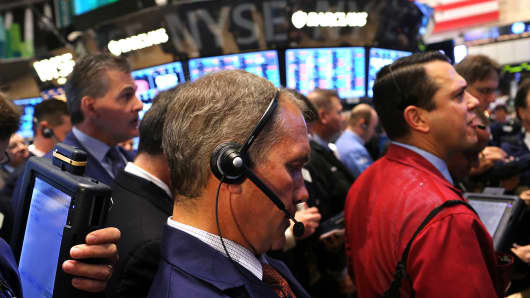Financial markets are relieved that the U.S. Congress has finally approved a deal to avert a "fiscal cliff", but analysts warn that investors now face a rocky two months ahead as negotiations over the debt ceiling begin.
Asian markets rose to a five-month high on Wednesday after news late on Tuesday that the U.S. Congress approved a rare tax increase on the wealthiest households to prevent the U.S. economy from falling into a recession.
European shares meanwhile were expected to open higher,judging by trade in equity futures, suggesting a good start for Wall Street on the first day of trading in 2013.
This relief in markets, however, is likely to be brief, says Andrew Economos, managing director and head of sovereign and institutional strategy with JPMorgan Asset Management in Hong Kong. This is because the real work will begin with talks to ink an agreement on the U.S. debt ceiling, without which the U.S. may default on its debt obligations. The U.S. is scheduled to hit its debt ceiling on February 28.
"This will plague us at least until the end of the first quarter because we have got these discussions about raising the debt ceiling which will lump all negotiations – expenditure, tax hikes – into one. So the first quarter is going to be choppy," Economos told CNBC Asia's "The Call" on Wednesday.
Tuesday's bill stops tax hikes from hitting about 99 percent of taxpayers, among other measures, and also postpones for two months $109 billion in spending cuts on military and domestic programs set for 2013. It also raises income taxes on families earning more than $450,000 per year and limits the amount of deductions they can take to lower their tax bill.
(Read More: Here's What the Senate's 'Fiscal Cliff' Deal Looks Like)
This deal averts an immediate "fiscal cliff", but the issue of the budget and the debt limit, which now stands at $16.4 trillion, remains, analysts say. The White House wants any fiscal cliff deal to include a borrowing cap hike to avoid a repeat of 2011's debt limit fight.
In early 2011, Republicans and Democrats wrangled over the debt ceiling, with the former demanding deep spending cuts in in exchange for a hike in the borrowing cap. The crisis ended when a deal was reached on July 31 that raised the debt ceiling and reduced proposed increases to future government spending.
(Read More: Moody's: Likely to Back US Rating If Debt Ceiling Raised)
A fear that this scene will replay will keep markets on tenterhooks, said Martin Lakos, division director of Macquarie Private Wealth in Sydney.
"I think the problem for markets going forward is the fact that we are really not addressing the debt ceiling issue until the 28 February deadline," he told "Squawk Box". "So unfortunately, we are going to a couple of months of volatility."
Unless reforms were implemented to balance the budget over the longer term, the U.S. may need to pay the cost eventually.
"The bad news of course is that the budget deal was far from the 'grand bargain' to increase the debt ceiling limit and solve America's long-term budget problems that had seemed attainable only a few weeks ago," Shane Oliver, head of investment strategy and chief Economist with AMP Capital said.
(Read More: Why Congress Might Abandon the Debt Ceiling )
He added that some Republicans don't want to consider any tax hikes and some Democrats are adamant against any limits on out-of-control spending on health and social security.
"Commonsense indicates they should just meet in the middle on both tax and spending, but unfortunately the failure to do so means another contentious debate that will likely take us to the brink of a Government shutdown and possible ratings downgrades in February," Oliver said.
This means a bumpy month ahead for markets, he added.
Markets in Japan, China and New Zealand are shut for the day.
—By CNBC.com's Jean Chua


